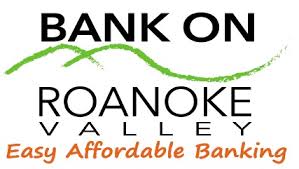 United Way Roanoke Valley, local government leaders and heads of financial institutions have formally introduced a new public-private partnership designed to increase the financial stability of families in the Roanoke Valley.
United Way Roanoke Valley, local government leaders and heads of financial institutions have formally introduced a new public-private partnership designed to increase the financial stability of families in the Roanoke Valley.
Bank On Roanoke Valley (BORV) is a collaborative project initiated by United Way of Roanoke Valley to help increase the financial stability of unbanked and underbanked households in the Roanoke Valley (Cities of Roanoke and Salem; Town of Vinton; Counties of Craig, Botetourt, and Roanoke) by improving financial literacy, build assets, and save money on fees.
It is intended to connect unbanked and underbanked citizens with low-cost or free starter checking and/or savings accounts, and provide free financial educational classes to the public throughout the year.
At a press conference held during the Roanoke Valley Lifestyle, Career and Financial Fitness Fair at the Roanoke Civic Center, Bank On showcased an impressive array of public-private partners involved in this endeavor including local government leaders from the City of Roanoke, City of Salem, Roanoke County, and Town of Vinton, and every major banking institution in the Roanoke Valley. United Way is serving as the fiscal agent for the partnership and will provide leadership, planning and implementation support.
Partners proudly stood side by side as the group announced its ambitious goal of opening of 1,000 new accounts in the Roanoke Valley; and offering at least 200 hours of free adult financial education to the public at various locations throughout the year.
Beginning on January 16, the public may visit Roanoke Valley branch locations of any participating financial institution and ask about their Bank On qualified accounts. All Bank On Roanoke Valley partners have committed to offer no or low-cost checking account with no minimum balance; ATM or debit card; FREE online banking (where available), no-fee check cashing and bill payment; and unlimited teller transactions. Some will even work with those that have incurred overdraft fees in the past, and those that need a “second-chance” account.
Bank On will be utilizing the FDIC Money Smart curriculum to cover a variety of class topics ranging from the basic (how to keep track of your money, how to choose and keep a checking account), to intermediate (how your credit history will affect your credit future; Loan to Own: know what you’re borrowing before you buy) to advanced (what home ownership is all about, how to recover financially and rebuild your credit after a financial set-back).
“The tremendous leadership and support from United Way, local governments, and financial institutions is evidence of the commitment to improve the quality of life for residents in the Roanoke Region. We share a common goal – we want families to have a strong financial foundation; and it will take everyone working together to bring about the measurable change we want to see.” said Chris Morrill, Roanoke City manager and Bank On Roanoke Valley Steering Committee chair.
The average unbanked person spends five percent of net income on unnecessary fees. For a lower-to-medium income worker, this amounts to about $1,000 in fees per year, or $40,000 over an average working life. The BORV goal of 1,000 new accounts could translate to a total cost savings of $1,000,000 for families in the Roanoke Valley and serve as a stepping stone to long-term financial stability.
Research conducted by the Federal Deposit Insurance Corporation (FDIC) in 2009 found that more than a quarter of U.S. households rely on alternative financial services to manage their money. Further, CFED (Corporation for Enterprise Development) found out that in 2013, as many as 44% of households in America lack the cash savings to survive three months at the federal poverty line in the event of a loss of income.
In the Roanoke MSA, an estimated 6,525 households are unbanked – they do not have a checking or a savings account. In addition, close to 23,000 households are underbanked – they may have a checking or savings account but still use costly alternative financial services.
This alternative system includes check cashers, payday loan providers, pawn shops, auto title lenders and rent-to-own stores that charge high fees for services the majority access for much less. Something as simple as a checking account can be the first step in saving, planning for the future, building credit and climbing the economic ladder. Unbanked and underbanked individuals operate in a mainly cash-based system, missing out on the stabilizing benefits a checking account provides.
“As more families experiencing financial difficulties rely on safety net services, it is even more important for us as a community to continue to invest in preventive efforts that provide families with long-term solutions. Without the most basic financial tool – a checking account – families are hard-pressed to build savings and assets and to respond to emergencies,” said shared Frank Rogan President and CEO at United Way of Roanoke Valley.
It has been found that successful financial empowerment programs in municipalities such as Bank On can assist not only those in need, but deliver what the Cities for Financial Empowerment Fund calls a “Supervitamin Effect” by improving social service program outcomes as well.
Morrill adds that over the next few months, Bank On will be working closely with nonprofit safety net providers, faith and the business leaders to get the word out about the program and connect people to the products and services offered.
Additional information about the Bank On products offered by each financial institution and listing of topics for upcoming financial education classes are available on the Bank On Roanoke Valley website: www.bankonrv.org

